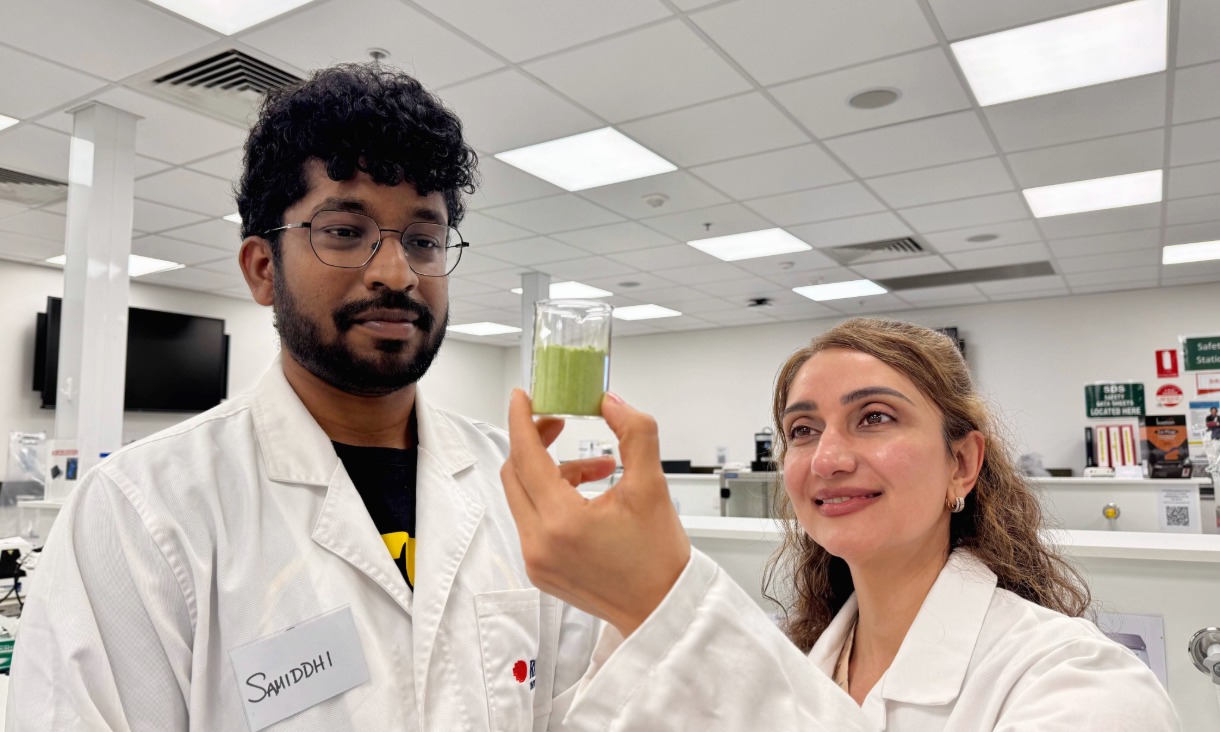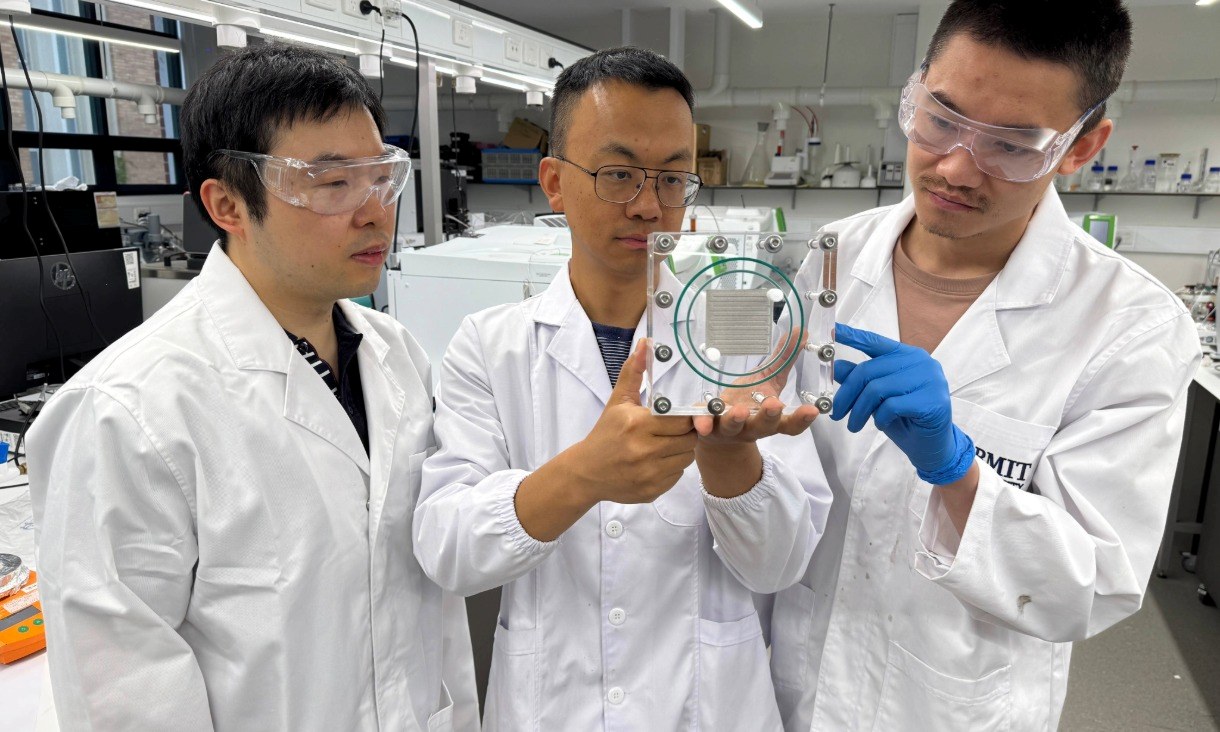‘Incredibly resilient’ nylon device creates electricity under tonnes of pressure
RMIT University researchers have developed a flexible nylon-film device that generates electricity from compression and keeps working even after being run over by a car multiple times, opening the door to self-powered sensors on our roads and other electronic devices.
Indigenous plant could have handy health benefits
New research suggests an Australian desert plant could help food manufacturers improve protein quality and reduce reliance on added salt in staple foods.
European research lays the groundwork for future stem cell clinical trials
RMIT has contributed to an international consortium exploring how human mesenchymal stem cells could help to repair brain injury in children born preterm.
New carbon-conversion technology could turn emissions into jet fuel
RMIT researchers have developed a carbon conversion technology that may one day help turn industrial emissions into jet fuel, by simplifying how carbon dioxide is recycled.







